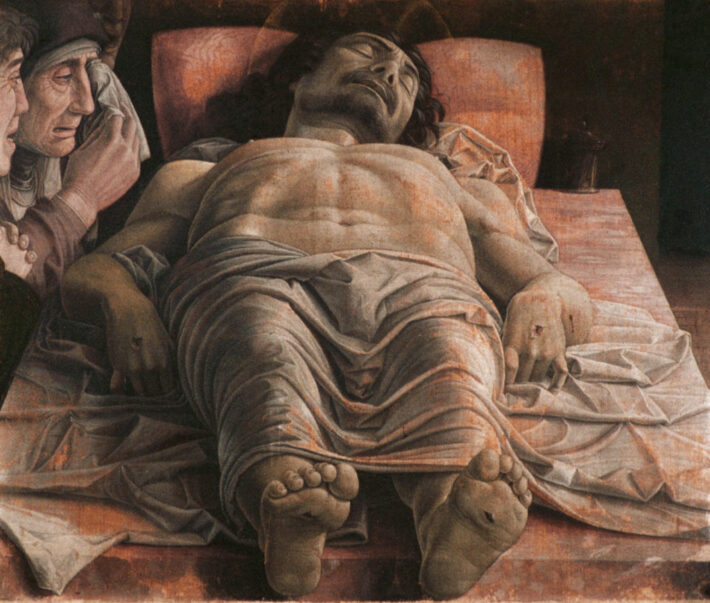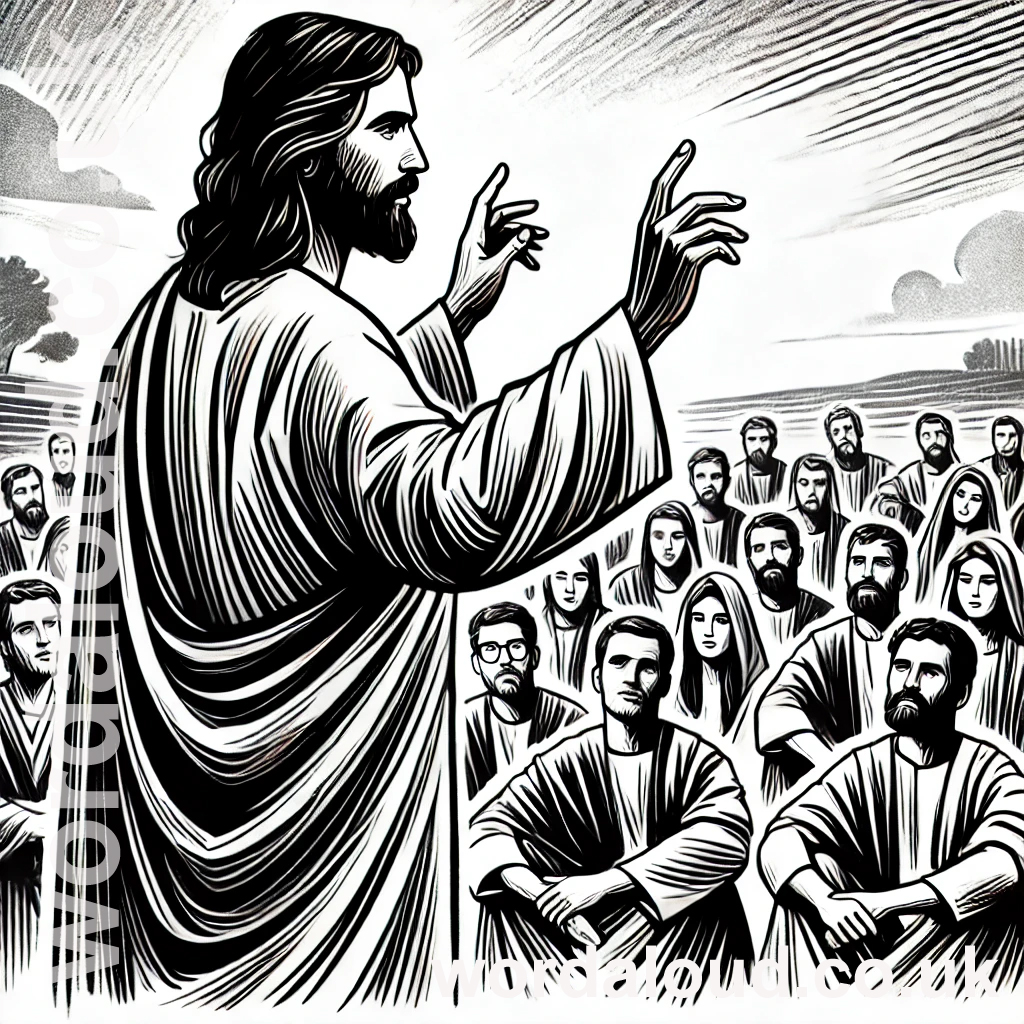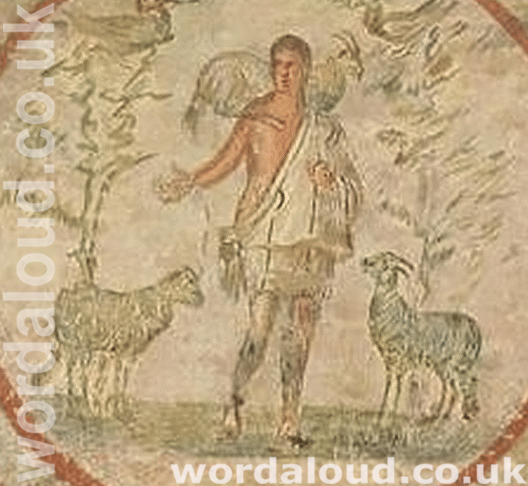On Thursday, there is more lost-history to contemplate. More Christian life unknown. Certainly, His Grace tacitly withdraws some measure of the veil of – more creative years. Though what he has to say does not overtly contradict received Church teaching.
His Grace moves the beginnings of Christian faith – the Church – as from stunned remains: Jerusalem razed – as our first generations looked back onto it.
This nexus of salvation-history – all history pointed forwards-backwards either way in faith in Jesus. As, in intervening centuries, disparate communities scatter through what is becoming a wreckage of Empire, spiritual waste, gather their scraps, and they begin to communicate. Truth-recalled – reverse-transcribed like RNA like a retrovirus – penetrated into the pagan world laid out for it – became life.
*
On Friday, His Grace moves The Death Of God. Directly, he talks about Ron:
‘It may be some of you sitting here now have experienced the death of a person who has been very close to you and of considerable importance in your life. I hope each one of you may understand something of the importance of what I am saying, when I say to you what you might think is my stating the obvious, namely that a loved one dying can tear our faith apart.
‘I can see one or two of you nodding as I ask you to think about this. It is an important reality of our faith. I ask forbearance as I say this. I should like to share with you a thought, that in that experience of death, there is a place where our Christianity lives, if it lives at all, and has its seeding ground. Paradoxically, in a sense, it becomes a place where we are most alive, through which our life as Christians blossoms.
‘There are those of you also who don’t yet fully believe in death. This is because you are young. Death is an idea, a concept, but still it is a long way away from you really. If or when a loved one is in the process of dying and then dies, you are perhaps not now experiencing your own mortality, despite the form of words that we use in our Lenten services.
‘But there is an understanding about death that you need to have, if you have any sense of becoming a Catholic priest. Christ died. Before he did so, he begged his Father, and he experienced anxiety, even in a spiritual sense, commuted, despair. I put it to you that our Christian faith is not quite real without our knowing that.
‘Now I think one thing we need to understand is that grief takes us beyond faith. What do I mean by that? Well, grief shatters us. It’s very difficult to understand on a theoretical level. Our very sense of how things ought to be is violated. We are not equipped to think of death, not by home-spun, natural mechanisms, which is to say apart from revelation. With death, all that we thought we knew is thrown wide open. There is an emptiness about grief. Even to committed Catholics, who go to church on Sunday, their Catholic faith can seem suddenly a long, long way away from them, to the point of its coming to seem quite irrelevant. I hope you don’t mind my saying to you that it can all become a bit fish-on-Friday.
‘Now, this is quite a thought to take on for you. When in the close and lived presence of death, a person’s Catholic faith becomes, not even a comfort, but rather instead absolutely irrelevant. It simply doesn’t begin to connect with the reality that person is now experiencing. In some important and significant respects, it might as well not be there now.
‘Now these are difficult thoughts, because it asks us something about our faith, and it asks some very searching questions about the reality of our faith. How far does that reality extend? Does it reach into and encompass the absolute void of death, which we simply cannot countenance, but which is the experience of many when loved ones die, just as it must have been to those first Christians that first Holy Saturday? I ask you to think very deeply within that time. Where are we when the apparently absolute hollowness of death strikes? Are we still good Christians then, or are we desolate?
‘You see, we claim a lot as Christians, and then death comes along and pulls the rug out from under us. There is a stripping away here. This is what I should like you to think about through these next days. I’d like to develop this as a theology of Holy Saturday, which lies between Cross and Resurrection. Where are we, when death strikes, when we may seem totally, utterly bereft of hope, when we are not ourselves, when we are lost to ourselves? And I should like you to consider that a greater and more holy reality can and must be found here.
‘In terms of theology, the Church remains by and large unusually silent about this day. Well, what really happens in churches? The nice Catholic women come in and prepare for Easter? There’ll be the flowers arranged, and there’ll be people – all of them, who lead such busy lives, wanting and given this opportunity to contribute – for the Easter Vigil. It’s as if the day is almost deleted, whereas considered most truly, this is toward if not itself at the heart of Catholic faith. Think about it. A church can so often constitute a very peculiar picture today, by virtue of our community activity, which can become in a sense a kind of communal covering over, as we obey our most natural and immediate human instinct which is toward life. God is dead on the Cross, and he has not been resurrected yet; he has not come back to life. There’s no Easter yet, only complete and abject loss and failure. If that is not the very seedbed of our Christian faith then I don’t know what is.’
![]()
![]()
![]()
![]()








